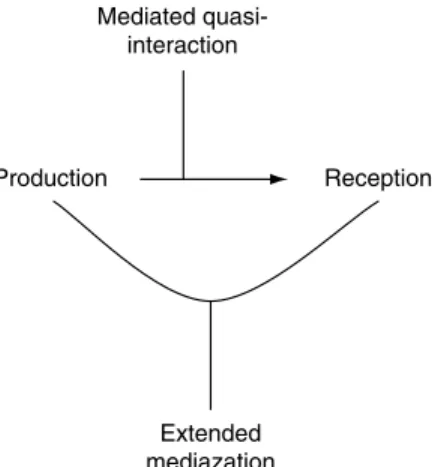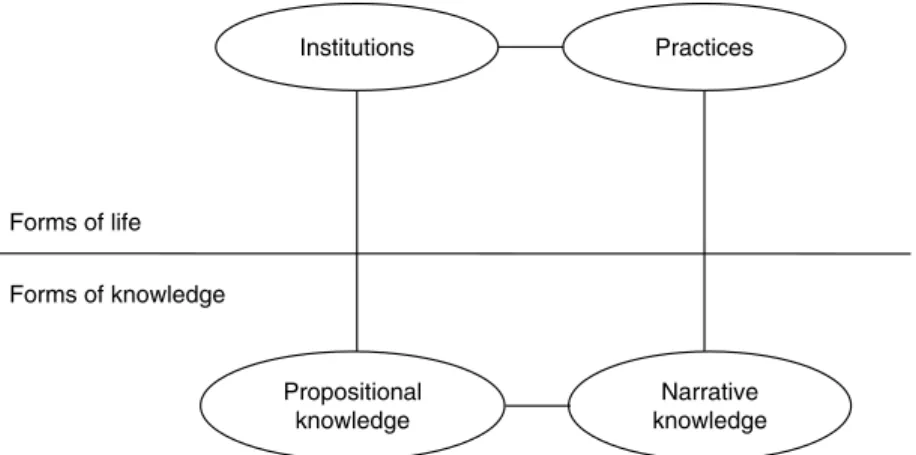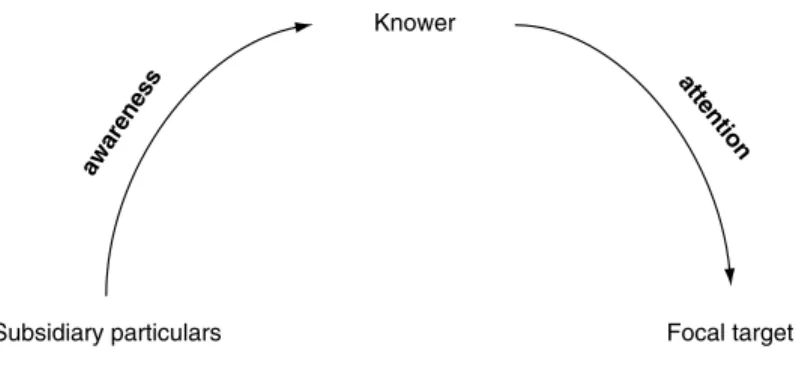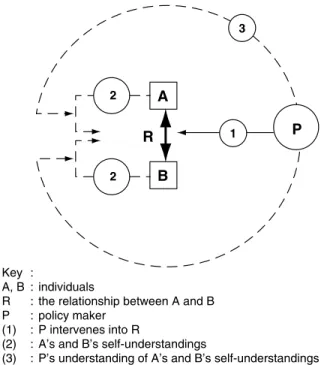It lifts the idea of organizational knowing to the top of the heap of explanations that work. The chapters in this book are clear jewels, accessible and practical, based on deep philosophical study and broad reading of the new literature on organizational knowledge. The moral rights of the author are registered Database law Oxford University Press (creator).
Questions about reproduction outside the scope of the above should be directed to the Law Department.
Meta-knowledge
It is the mark of an educated man to seek in every investigation the kind of accuracy which the nature of the subject permits. The broader issue, I think, is the extent to which our forms of knowledge and methods of inquiry respect the complexity of the phenomenon in question (Wallerstein 1999: chs. 10, 14). What are the representational and social practices through which organizations construct and communicate their forms of knowledge.
1984), 'Toward a Model of Organizations as Interpretation Systems', Academy of Management Review red.), Handbook of Organizational Learning and Knowledge (Oxford: Blackwell). 1990), 'The Idea of the Corporation as an Idea System: Commerce in the Systems Age', Technological Forecasting and Social Change, 38: 1-14.
TOWARDS A
KNOWLEDGE-BASED VIEW OF ORGANIZATIONS AND
THEIR ENVIRONMENTS
The experiential knowledge of the participant (or participant observer) is transformed into information for the curious viewer (Rosen 2001). As Solokowski observes: “The horizon of the potential and the absent surrounds the actual presence of things. The information that represents a phenomenon and the phenomenon itself are not the same – a map is not a territory (Weick 1990).
This is followed by a discussion of the events that took place in the Brent Spar controversy. Through his actions, the public was kept in touch with what was 'going on'; the television cameras were the public's 'eyes' in the North Sea. 1996), 'Risky Thinking: Irrational Fears about Risk and Society', The Annals of the American Academy of Political and Social Science.

THREE
The basic characteristic of propositional knowledge is the formulation of conditional 'if, then' statements that relate a set of empirical conditions ('If X . . .' - the factual predicate) to a set of consequences that follow when. As Berger and Luckmann put it: “The institution asserts that actions of typex will be performed by actors of typex” (ibid., emphasis added). The result is conflict: 'the ideals and creativity of the practices are always vulnerable to the acquisition of the institution' (ibid. 194).
Polanyi (1966) and Polanyi and Prosch (1975) argue convincingly that all practical knowledge is tacit, in the sense that the primary object of our attention (e.g. a pair of stereoscopic photographs) always rests on the features we are aware of. only aware. EG individual photographs), and which must be silently integrated by the knower with the central objective. Practitioners observe—that is, they are centrally aware of—the effects of their problem-solving efforts by being aware of hitherto known episodes of similar problems in the past. For example, propositional knowledge used in organizations in the form of rules is certainly related to formal knowledge about organizational phenomena created by organizational researchers - the former is supposed to be assisted, refined and, ideally, replaced by the latter.
The mismatch between canonical (propositional) knowledge and non-canonical, context-dependent practical action is not so much the result of organizations 'misunderstanding' the work of technicians, as Brown and Duguid suggest, as an intrinsic property of the generalizations that occur in organized contexts. 1994), 'A Dynamic Theory of Organizational Knowledge Creation', Organizational Science Sharing Knowledge, Celebrating Identity: Community Memory in a Service Culture', in D. 1982), 'The Nature of Knowledge and Organizational Psychology', in N. Substituting ' the firm' for 'society' in the preceding quotation gives us the organizational problem that enterprises face.
Individual knowledge is possible precisely because of the social practices within which individuals are embedded – both mutually determined (Harre and Gillett Wetherell and Maybin. Moreover, it profitably avoids what Hayek called the 'synoptic illusion', namely the assumption that knowledge can be surveyed by a single mind, emphasizing instead the emergent character of organizational knowledge. As Spender notes, "the strategist is forced to make a personal judgment about the relevance of the prescription to his firm's situation " (emphasis added).
1998a), 'The Word and the World: A Critique of Representationalism in Management Research', International Journal of Public Administration.

FIVE
In contrast, for some researchers such as Kay (1993), organizational knowledge becomes the essence of the firm. Because on the chest x-ray, all he can see are the shadows of the heart and ribs with some spidery spots between them. A collectivist understanding of organizational knowledge was evident in Penrose's work on the theory of the firm (1959).
The answers to 95% of the questions we are asked exist somewhere in the computer system, or in the manuals, or somewhere else. Our knowledge of the latter is "always supplemented by the individual case, even productively determined by it." But the categories as categories may not correspond to the specifics of the current situation.
Since the map is a representation of the territory, I must be able to match my location in the area with its representation on the map if I am to be successful in reaching my destination. The crucial role of the body in the act of knowing has been consistently emphasized by Polanyi (cf. Gill. At the same time I am also aware of the sensations in my palm of holding the hammer.
Shifting attention to affiliate data leads to the loss of skilled engagement with the activity in question. This is the phenomenal aspect where a new coherent sensory quality emerges (i.e. her sense of the hollow) from the initial sensory perceptions (i.e. the impact of the probe on the fingers). The student is initially surprised: "he can see in the X-ray picture of a chest only the shadows of the heart and ribs, with a few spider spots between them.
To treat practical (or tacit) knowledge as having a precisely definable content. which is initially in the head of the practitioner and is then 'translated'.

ORGANIZATION AS
CHAOSMOS : COPING WITH ORGANIZATIONAL COMPLEXITY
SEVEN
Similar value changes can be seen in the reorganization of the welfare state in several Western economies in the last fifteen years (Osborne and Gaebler 1992). Vickers has consistently argued that findings of fact in social life are essentially judgments because their identification depends on the evaluative system of the investigator (Churchman, 1971; Flood and Jackson, 1991; Morgan, 1986). As Taylor (ibid. 34) notes, 'the language is constitutive of the reality, is essential to its being the kind of reality it is'.
Thus, a social practice, such as the way business organizations in the same industry interact, is what it is by virtue of the key self-understandings embodied in the practice. Such self-understandings are not reflections of the world as it is (relations between firms are by nature neither competitive nor collaborative) but intersubjective meanings "constitutive of the social matrix in which individuals find themselves and act." Hall's reflections on the changes Tork brought about in the Open University is a useful reminder of the intimate relationship between language and social practices.
Undoubtedly, at the heart of reforms is often an implicit question: what is the role of the police in our society. These reforms are considered in terms of the perceptions created by the system of respect for this particular practice. What is the role of the police?” the conservative British government, in line with its broader neoliberal socio-economic philosophy, provided an answer that ran counter to the traditional professional work ethic espoused by the police.
The role of the police," the government seems to be saying, "is to fight crime as efficiently and effectively as possible. This is the most important reason why it is necessary for policy makers to have developed a coherent, credible and legitimate discussion: it provides them with the new distinctions, definitions and self-understandings that can constitute the new evaluation system of practice in reform.

EIGHT
What would be the benefits if 'organisational change', both as an object of study and as a management preoccupation, were to be approached from a perspective of ongoing change rather than stability. Although the authors do not elaborate on these 'non-linear processes', they imply that to properly understand organizational change we must allow for emergence and surprise, which means that we must take into account the possibility that organizational change has consequences and implications beyond above these. originally imagined or planned. If organizational change is regarded as a fait accompli, its dynamic, unfolding, emergent qualities (in short: its potential) are devalued, even lost sight of.
Third, a major cause of dissatisfaction with the traditional approach to change—the one that prioritizes stability and sees change as an afterthought—is pragmatic: change programs driven by that view often fail to produce change (Beer and Nohria 2000; Taylor, 1993). Nearly ninety years ago, William James expressed his displeasure with "the prevailing tradition in philosophy" for its adherence to "the Platonic and Aristotelian belief that determination is a nobler and more worthy thing than change" (James. Rather than seeing organizational change as orchestrated from above, Orlikowski (ibid. 65) sees it as "rooted in the ongoing practices of organizational actors, and [emerging] from their (tacit and not-so-tacit) adaptations and experiments with the day-to-day contingencies, disturbances, exceptions, opportunities and unintended consequences they encounter'.
Similarly, Weick and Quinn have concluded that a shift in vocabulary from 'change' to 'change' will make theorists and practitioners more aware of the dynamic, changing nature of organizational life. We start from the assumption that to properly understand organizational change (in the sense argued by Orlikowski, Weick, and Feldman), we need to stop giving ontological priority to organization, thereby making change a exceptional effect produced only under specific circumstances by certain people (agents of change). Just as we have been inspired by authors such as Orlikowski, Weick and Feldman, we want to argue here for an even more radically process-oriented approach to organizational change.
Similarly, Orlikowski makes her improvisational model of organizational change dependent on the type of technology introduced: groupware technologies allow individuals to adjust and adapt them – hence the need for continuous change – whereas traditional technologies do not (Orlikowski and Hofman 1997: 18). . As several reviews of the literature on organizational change have shown (Porras and Silvers 1991; Van de Ven and Poole 1995; Weick and Quinn 1999), the bulk of research is aimed at providing overview accounts of organizational change.